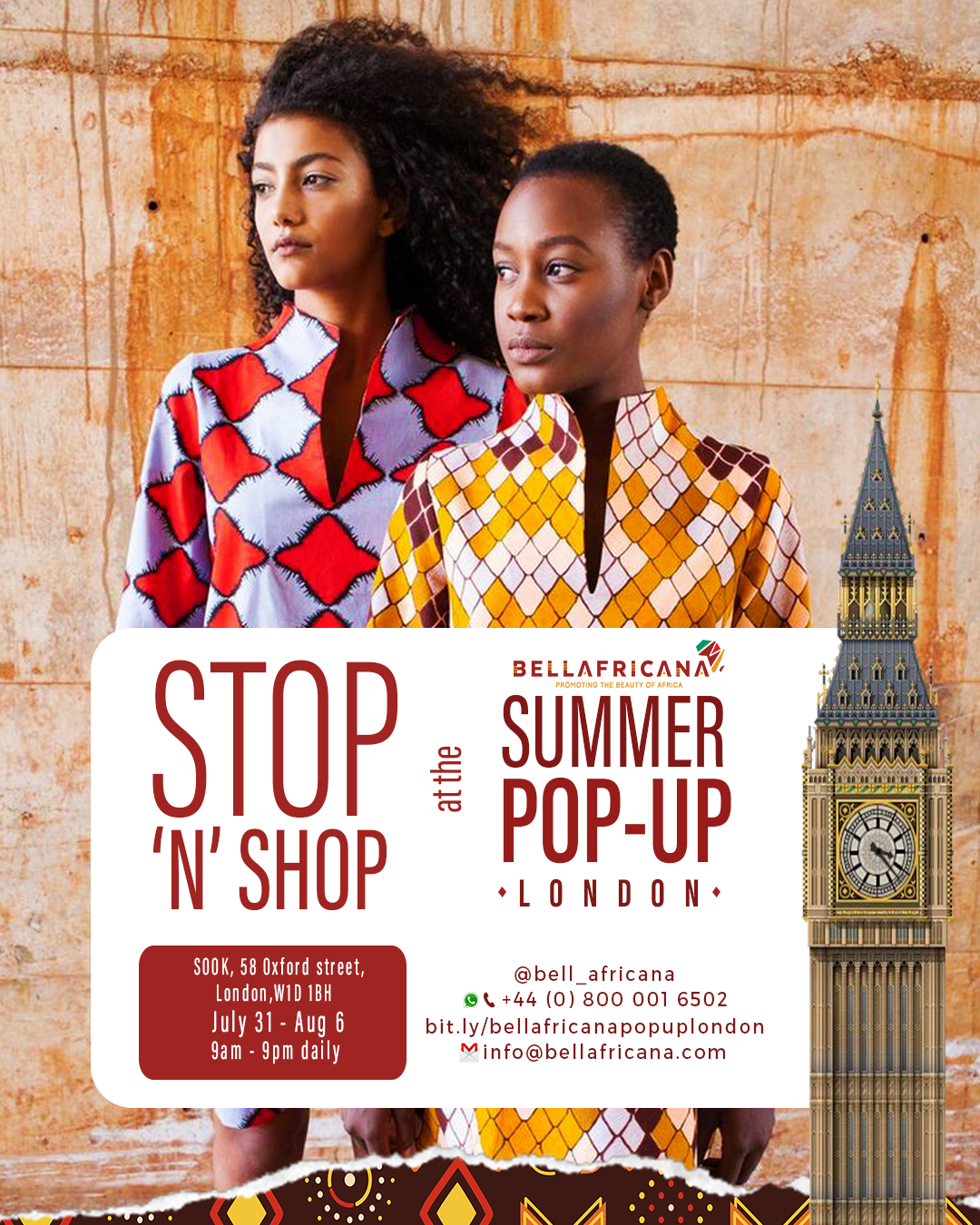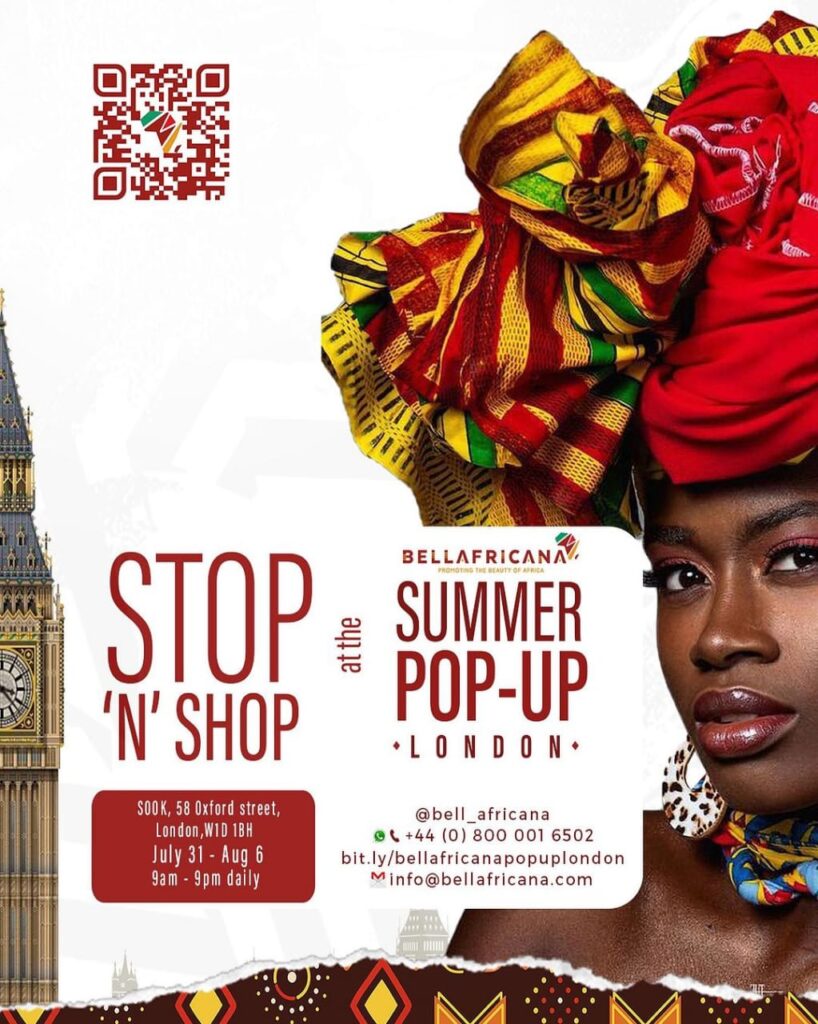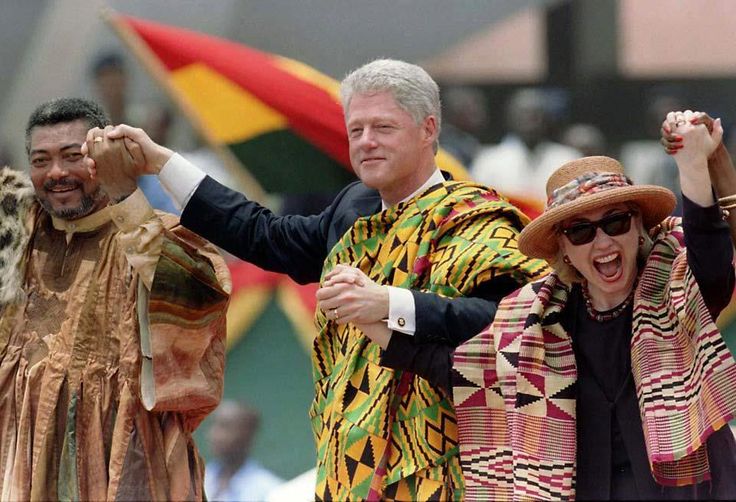Bellafricana, the renowned tech-enabled community organization that celebrates and enables creative entrepreneurs, is thrilled to announce its highly anticipated Summer Pop-Up Event in Oxford Street, London.
After seven successful years of fostering connections and promoting African craftsmanship in Nigeria, Bellafricana is now ready to captivate the hearts of Londoners with an extraordinary showcase of African talent and their creativity to promote non-oil export in Africa.
The Summer Pop-Up London Event will take place over seven exciting days, from Monday, the 31st of July to Sunday, the 6th of August, at a prime location in London, Oxford Street, Central London (Europe’s busiest shopping street). This exclusive event will bring together a curated selection of the finest African brands, offering a captivating array of handcrafted products across various categories, including fashion, accessories, home decor, beauty, and more.
With a proven track record of hosting six major pop-up events in Nigeria, Bellafricana has gained a reputation for curating exceptional collections that embody the spirit of Africa. This Summer Pop-Up Event in London promises to be a celebration of African culture, craftsmanship, and entrepreneurial spirit.

Attendees will have the unique opportunity to immerse themselves in the vibrancy of African creativity. From intricately woven textiles to bold and contemporary designs, each product tells a story and reflects the rich heritage and diversity of the African continent. Engage with passionate creators, hear the inspiration behind their works, and discover the remarkable talents that Bellafricana’s community represents.
“Our vision at Bellafricana is to showcase the beauty and innovation that Africa possesses,” says Bukky Asehinde, Founder and CEO of Bellafricana, a Nigerian zero oil export Ambassador. “We are thrilled to bring our Summer Pop-Up Event to London, a city renowned for its love of creativity and diverse cultural experiences. Our aim is to bridge the gap between African creatives and the global market, while offering Londoners a unique and authentic shopping experience.” Bellafricana is endorsed by the Nigerian Export Promotion Council, the Federal Government of Nigeria Apex Institution for the promotion, development and diversification of export.
By attending the Bellafricana Summer Pop-Up London Event, patrons not only support and empower African creative entrepreneurs but also gain access to exclusive, handcrafted products that are often hard to find elsewhere. Each purchase made at the event contributes to the growth and sustainability of the creative community, making a tangible impact on the lives of talented individuals and their communities.
Bellafricana’s Summer Pop-Up London Event is a must-attend for fashion enthusiasts, interior design aficionados, art lovers, and anyone seeking distinctive and ethically made products with a story to tell. Join us as we redefine the narrative around African craftsmanship, promote cultural exchange, and celebrate the ingenuity of creative entrepreneurs.
Click here to STOP “N” SHOP a piece of Africa at Bellafricana Summer Pop-Up London on Oxford Street.
Event Details:
● Event Name: Bellafricana Summer Pop-Up London
● Dates: July 31 to August 6
● Venue: 58 Oxford St, London W1D 1BH For more information about Bellafricana and the Summer Pop-Up Event,
Please visit [www.bellafricana.com], register as a vendor at [www.bellafriana.com/pop-up-London], get your free tickets to attend the event here, for partnerships or sponsorship email [[email protected]], stay updated on the latest news and updates by following Bellafricana on social media [@bell_africana, @bellafricanauk].
About Bellafricana:
Bellafricana is a tech-enabled community organization that promotes and enables creative entrepreneurs in Africa. Founded in 2016, Bellafricana serves as a platform to showcase the beauty and innovation of African craftsmanship, connecting creative African-owned businesses with a global audience. Through pop-up events, online platforms, and community engagement, Bellafricana celebrates the diversity, heritage, and entrepreneurial spirit of Africa.
Media Contact: Name: Bukky Asehinde, Position: Founder/CEO, Email Address: [email protected], Phone Number: +44 (0) 800 001 6502









